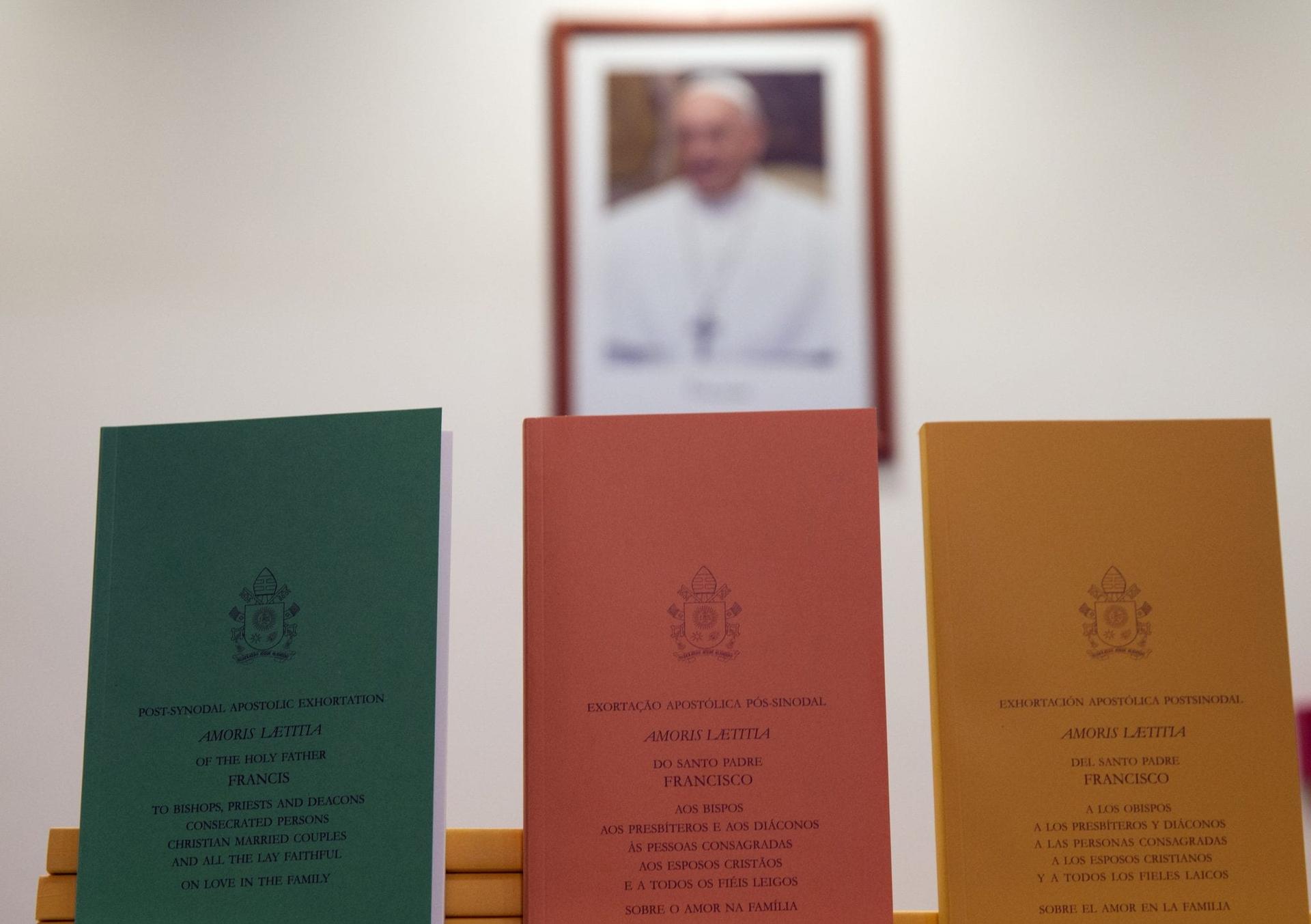Reaction to Pope Francis’ letter on family life, Amoris Laetitia, in which he opened the door for some divorced and remarried Catholics to receive communion while upholding traditional Catholic teaching about marriage as a union between a man and a woman, drew wide praise from American bishops on Friday.
Among those not quite so impressed, however, were pro-LGBT Catholic groups, one of which described the document’s comments about gay and lesbian Catholics as “ill-informed.”
Cardinal Donald Wuerl of Washington, one of the pope’s chief U.S. allies and a participant at two bishops’ summits that informed the pope’s teaching, wrote in a blog post that Francis isn’t offering “an entire pastoral plan,” but instead is urging Catholics to apply the Gospel to difficult family situations.
“The rule to follow in all cases, the pope makes clear, is the love and mercy of the Lord,” Wuerl wrote.
Another Francis ally, Chicago’s Archbishop Blase Cupich, pointed to the pope’s words on conscience, which, he said, call Catholics to “an adult spirituality.”
Cupich was asked how the document applied to gay Catholics, and highlighted the section on conscience, in which Francis said the Church must “make room for the consciences of the faithful” and that individual believers “have been called to form consciences, not to replace them.”
“The pope has made clear that the role and formation of consciences, and not replacing them, is in fact for all Catholics, not just for people who are in situations of being divorced and remarried,” Cupich said.
“I think that’s a very liberating part of the document,” he said.
A leader in the American hierarchy’s more conservative wing, Philadelphia’s Archbishop Charles Chaput, also praised the document, highlighting the pope’s concern for children and “the value of adoption” and saying that the pope’s call for discernment regarding challenging family situations “is already happening in many of our parish communities.”
The head of the US Conference of Catholic Bishops, Louisville’s Archbishop Joseph Kurtz, called the document “a love letter to families” asking the Church “to realize more and more her mission to live and love as a family.”
The pope’s document sums up a two-year long process of debate and conversation about Catholic family life, which included discussion of hot-button issues such as divorce, the role of women in the life of the Church, contraception, and homosexuality.
Some Catholics had hoped Francis, pointing to his “Who am I to judge?” comments about gays in the Church, had hoped the document would call for more openness to gay relationships. Instead, Francis reiterated the church’s opposition to same-sex marriage.
“Where is the Pope Francis who embraced his gay former student and husband during his US visit? Where is the Pope Francis who invited a transgender Spanish man for a personal meeting at the Vatican?” asked Francis DeBernardo, head of New Ways Ministry.
“This Pope Francis is hard to find in his latest text,” he said.
Another such advocacy group, DignityUSA, called the document a “tremendous disappointment” to the LGBT community.
Among other things, the group objected in a statement released Friday that the document contains “no strong call for an end to anti-LGBT violence, for Church officials to avoid inflammatory statements against the LGBT community, or for a clear statement that LGBT people and supporters are welcome to participate in the Church’s sacramental life and ministries.”
Still, DeBernardo praised some aspects of the document, including “calls for non-judgmental pastoral care, assisting people in developing their consciences, encouraging diverse pastoral responses based on local culture, and calling church leaders to be more self-critical,” but said they should have been applied to LGBT people as well.
He said he hopes gay Catholics take up the pope’s invitation to “to speak confidently with their pastors or with other lay people whose lives are committed to the Lord” in an attempt, as he put it, to “transform the Church’s ministers and leaders.”
Francis also used the document to praise “the recognition of women’s rights and their participation in public life,” and slammed the “excesses of patriarchal cultures that considered women inferior.” He wrote that he sees “in the women’s movement the working of the Spirit for a clearer recognition of the dignity and rights of women.”
Kerry Robinson, who was in Rome last month to push for greater opportunities for women in the Church, celebrated that language.
“Many of us are feminists because we are Catholic and Catholic because we are feminists,” said Robinson, executive director of the National Leadership Roundtable on Church Management.
“Both the Church and the world have much to do to overcome the harmful and sinful effects of sexism, but this is an important sign of hope and encouragement,” she continued. “All women and men — ordained, religious, and lay — who have long championed the role of women in the Church, especially their leadership and decision making, should be heartened and emboldened.”
While reaction to the document was swift, especially on social media where activists of all stripes tried to spin the document to fit particular agendas, the pope’s top U.S. adviser urged Catholics to take time reading the document, echoing a plea the pope himself made in the text.
“This Apostolic Exhortation numbers over three hundred twenty-five paragraphs, and it is not intended to be read and implemented too hastily,” said Boston’s Cardinal Sean O’Malley in a statement.
“Rather than try to draw immediate conclusions from the text,” he continued, “we are urged to reflect upon it and to ponder, patiently and carefully, what the teachings will mean for the Church and for her ministry to families.”
Michael J. O’Loughlin is a Chicago-based reporter and author of “The Tweetable Pope: A Spiritual Revolution in 140 Characters.”















